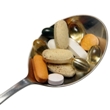
The controversy surrounding e-cigarettes (also called vape pens and vaporizers) has been in the headlines a lot lately. Most of this controversy relates to their use as a nicotine source. But there is also some growing controversy surrounding non-nicotine vape pens used as a source of vitamins.
Several companies, including VitaStik, Breathe, and VitaminVape, are now promoting vape pens as sources of inhalable vitamins, particularly vitamin B12. A lot of their marketing campaigns claim that inhaling vitamins is better than taking a supplement, and that the vape ingredients are “pure” and “natural.”
Tell your patients that while these companies are making a big push to declare their vape pens as “healthy” and “nicotine-free,” there still isn't good evidence that they are safe. These pens contain propellants and other chemicals, such as propylene glycol and glycerol, to aerosolize the ingredients. There’s no evidence that these chemicals are safe. There’s also no evidence that the aerosolization process, which involves heating, doesn't negatively affect the active constituents of the vape pen – meaning the vitamins, essential oils, or whatever else has been added for "health benefits."
Tell patients to avoid using vape pens as a source of vitamin B12. There is no evidence that this route of administration is safe or effective. Recommend that they take supplements or increase dietary intake of vitamin B12. For a list of foods with a high amount of vitamin B12, check out our new chart.
The information in this brief report is intended for informational purposes only, and is meant to help users better understand health concerns. This information should not be interpreted as specific medical advice. Users should consult with a qualified healthcare provider for specific questions regarding therapies, diagnosis and/or health conditions, prior to making therapeutic decisions. Copyright © 2025 NatMed. Commercial distribution or reproduction prohibited. NatMed is the leading provider of high-quality, evidence-based, clinically-relevant information on natural medicine, dietary supplements, herbs, vitamins, minerals, functional foods, diets, complementary practices, CAM modalities, exercises and medical conditions. Monograph sections include interactions with herbs, drugs, foods and labs, contraindications, depletions, dosing, toxicology, adverse effects, pregnancy and lactation data, synonyms, safety and effectiveness.
